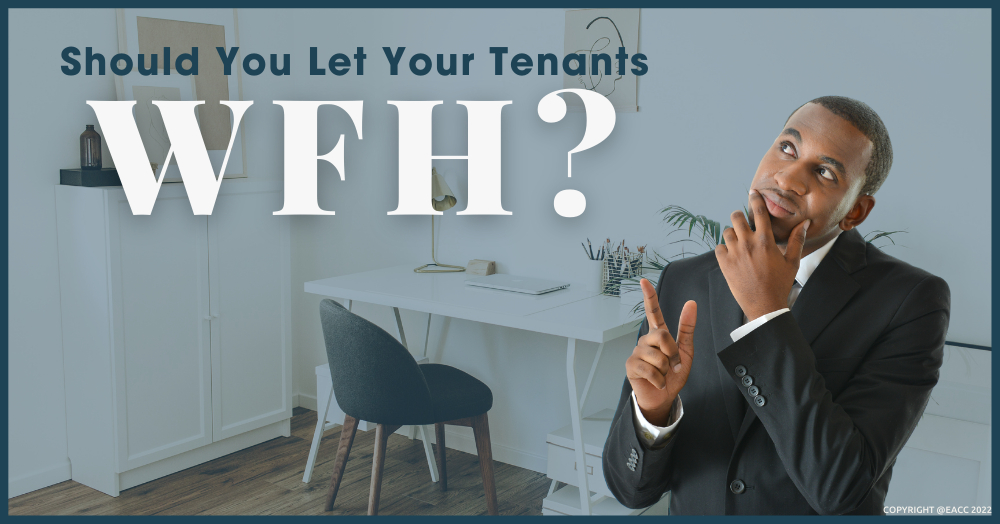
Should You Let Your Tenants WFH?
In this two-minute read, we look at some questions to consider if you’re a landlord with tenants WFH.
In our post-pandemic world, working from home (WFH) has become the new norm for many people. But as a landlord, you need to make sure your tenants are working in a way that doesn’t impact you negatively.
Most of us think of WFH as sitting in front of a laptop or doing Zoom meetings wearing a shirt and tie with pyjama bottoms. However, there’s been a boom of small businesses cropping up, many of them based in flats and houses all over the country.
Could tenants WFH affect your tenancy agreement?
Broadly, the answer to this question is ‘no’. However, there’s a difference between working from home for a job and running a business from a rented property. The latter used to be frowned upon as it could be seen as a ‘business tenancy’ rather than a residential one. However, changes to the law back in 2015 gave permission for certain ‘home businesses’ that could ‘reasonably’ be run from home.
Currently, the most common tenancy type is an Assured Shorthold Tenancy (AST) which stipulates that a property should only be used as a residence. This stops tenants from using the property as a business address, so you need to let your renters know that this is the case.
Should you ask tenants if they plan to work from your property?
There’s no reason why not. It’s always best to know what’s going on in your rental accommodation. You could get your letting agent to ask prospective tenants their intentions so you can make an informed decision.
Should you always allow tenants to WFH?
Most landlords would argue that their rent won’t be paid if their tenant doesn’t work, so the simple answer to this is ‘yes’. WFH for a couple of days a week shouldn’t pose a problem for most properties.
Difficulties arise when the form of work could cause damage to your property, or impact upon other residents. For example, if your tenant is a mechanic and plans to fix cars in the front garden, this could be a point of contention for neighbours. Similarly, if they’re running an internet sales business and using your property to store goods, you’ll want to make sure they don’t damage the interior.
Red flags to watch out for:
- Is your tenant using the property more for commercial purposes than residential?
- Are neighbours being affected by noise, traffic or anything else caused by the tenant’s business?
- Are customers attending the premises?
If you come across any of the above, you should seek further advice or speak to your tenants.
To find out more about the do’s and don’ts of tenants WFH, speak to our lettings team at Scottish Property Centre.